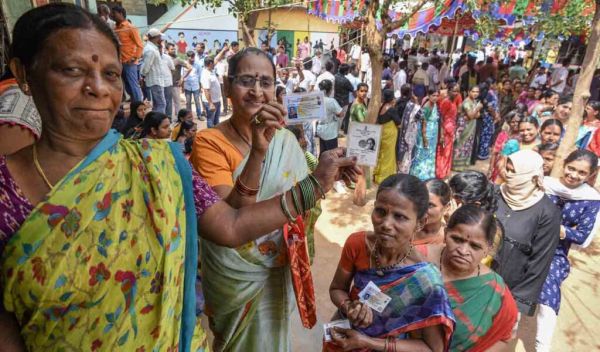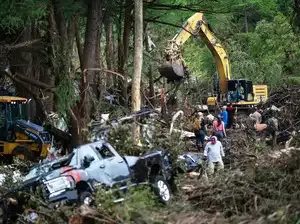
If Revanth Reddy-led government genuinely believed that an ordinance was the only way forward, why did it issue only for local bodies and not for the equally important education and employment Bill passed alongside it? Both BJP and Congress have failed backward classes
Published Date – 14 July 2025, 10:48 PM
By Dr Sravan dasoju
Both the BJP-led Union government and the Congress government in Telangana have displayed shocking political insincerity when it comes to delivering justice to backward classes. Despite repeated declarations, they have together failed to ensure proportionate political representation to BCs in local bodies, education, and employment.
The BJP, after promising an OBC caste census in 2019, dragged its feet for five years. Even more telling is the complete inaction on the BC reservation Bills passed by the Telangana Assembly in March 2025. These crucial Bills — meant to enhance BC reservations in local bodies and in education and employment — were sent to the President via the Governor. But the BJP, with its Telangana MPs and Union Ministers, made no effort to ensure that the President granted assent. Not a single statement, memorandum, or pressure tactic was used. This silence exposes their double standards.
Caste Survey Findings
The Congress in Telangana, led by Revanth Reddy, conducted a caste survey after immense public pressure and High Court directions. Though this survey and a study by a dedicated commission might fulfil the first step of the Supreme Court’s triple test, the findings have not been made public.
The full report is hidden, and the data kept confidential as if the Congress owns it. Even party MLAs have questioned the credibility of the figures, alleging inflation of OC numbers and underreporting of BCs. The government is silent. This raises a serious question: Can a government empower BCs without transparency and accountability?
Bills Passed But Not Pursued
On 25 March 2025, the Telangana Assembly, with support from all parties including the BRS, passed two historic Bills for 42 per cent BC reservations — one for local bodies and the other for education and employment. These were forwarded to the President by the Governor. But rather than waging a collective political battle, Revanth Reddy’s government did nothing. There was no national campaign, no pressure on the Prime Minister, no united political front built around the cause.
Instead of pursuing a sincere constitutional strategy, the CM staged a symbolic and substance-less ‘Maha Dharna’ at Jantar Mantar on April 2, demanding assent for the BC reservation enhancement Bills. Shockingly, this dharna took place before the Governor had even forwarded the Bills to the President, which only happened a full week later, on April 9. Even the Leader of the Opposition, Rahul Gandhi, did not attend the protest, underscoring the lack of seriousness and coordination within the Congress ranks.
Despite multiple one-on-one meetings with Prime Minister Narendra Modi, Revanth Reddy has never publicly raised the issue of BC reservations or the pending Bills. That silence is not just disappointing — it is damning. The carefully choreographed sequence of protest before action, silence when in power, and zero follow-up after forwarding the Bills, reveals a calculated betrayal dressed up as activism for social justice.
If Revanth Reddy is truly committed to BC reservations, why didn’t he convene an all-party meeting, as he did for the Banakacharla Project? He showed urgency when it served his political agenda to attack K Chandrashekhar Rao and the BRS, but failed to act on an issue that severely affects BCs.
Legally Flawed Ordinance
When the High Court directed that local body elections be conducted by September 2025, the Telangana government, instead of sincerely pushing for Presidential assent to the already-passed Bills, chose a dubious and constitutionally questionable route. On the same day, it prorogued the Assembly at 3 pm and hastily sent an ordinance for 42 per cent BC reservations in local bodies to the Governor — despite the original Bills still pending with the President. This move amounts to a blatant violation of the doctrine of colourable legislation and a deliberate subversion of the constitutional scrutiny vested in the office of the President.
Why wasn’t a special session of the Assembly convened to debate and pass a fresh amendment to the Telangana Panchayat Raj Act, 2018? Why bypass the legislative process? The answer is clear: this was a carefully orchestrated political conspiracy, crafted to monopolise credit, create the illusion that the government had fulfilled its duty, and conveniently shift blame onto the Governor, the BJP, or the opposition in the event of legal challenges to the ordinance.
This move clearly violates Article 213(1)(a) of the Constitution, which prohibits the Governor from promulgating an ordinance on a subject that requires the President’s prior sanction. It reflects a clear strategy: pass an ordinance that is destined to be struck down by the office of the Governor or by Courts, use that failure as a political excuse to conduct elections without implementing increased BC reservations and, of course, blame the opposition and gain political advantage. This isn’t a lapse in judgment; it’s a conspiracy to deceive BCs in Telangana.
If the government genuinely believed that an ordinance was the only way forward, why did it issue one only for local bodies and not for the equally important education and employment Bill passed alongside it?
The Congress, which promised sub-categorisation of BCs in its much-publicised Kamareddy Declaration, has gone completely silent after coming to power. This betrayal is treachery against the most deprived and marginalised among the backward classes, who have never received an opportunity for political representation over decades.
To make things worse, a few BJP MPs felicitated Revanth Reddy for passing this legally vulnerable ordinance, exposing their hypocrisy. Rahul Gandhi has repeatedly criticised ordinances as undemocratic, yet his own Chief Minister in Telangana used the ordinance route for one of the most sensitive issues. If Revanth Reddy truly believed in justice for BCs, he would have debated the matter, and passed a constitutionally sound amendment to the Panchayat Raj Act, the Municipalities Act, and the GHMC Act.
Violating SC’s Triple Test
The Supreme Court’s triple test doctrine, laid down in K Krishnamurthy v Union of India (2010) and Vikas kishanrao gawali v state of maharashtra (2021), mandates three conditions for granting OBC reservations in local bodies: an empirical study identifying social and educational backwardness, a unit-wise analysis of political backwardness in each local body to determine the reservation percentage, and ensuring total reservations do not exceed 50 per cent unless backed by exceptional justification.
Even if the Telangana government’s caste survey fulfils the first requirement, the second remains completely unaddressed. There is no evidence of any unit-wise, scientific assessment of political backwardness across panchayats or municipalities by a dedicated commission. The electoral declaration of 42 per cent BC reservation appears arbitrary and unsubstantiated, with no transparent methodology explaining how this figure was derived.
This omission renders the ordinance legally vulnerable and exposes it to an inevitable judicial challenge. The government seems to know this, yet it moved ahead. It’s a cold-blooded, calculated plan to appear proactive while ensuring failure by design.
If the goal is collective justice, why were all parties not invited to the Secretariat? Why not convene a closed-door meeting with legal experts, constitutional advisers, and social justice champions? Instead, soon after the ordinance was cleared by the Cabinet, a group of ministers held a press conference at the Congress party office, seeking support from the opposition. Why? Because this was not about building democratic consensus in the right forum, it was about scoring political points.
The principle of ‘Jitni Abaadi, Utna Hissa’ must not remain a slogan of Rahul Gandhi. It is a moral and constitutional obligation. And until the 42 per cent reservation for BCs with sub-categorisation is effectively implemented in local bodies, education, and employment, this fight will not stop. It is not the time for celebrations without understanding the consequences of a dubious ordinance. It is time to cautiously fight in the courts, in the Assembly, and in the hearts of the people, and not rest until justice is done.

(The author is BRS Member of Legislative Council)
-
Flash Flood Warning: Alert issued for tri-state area as heavy rain and thunderstorms continue

-
Texas flooding: stories of loss, resilience, and urgent need

-
The AI generation: How today’s youth are learning to live with machines

-
In flood-ravaged Texas, officials weigh drastic steps as hope fades for the missing

-
After Garrett Wilson’s megadeal, pressure mounts on Falcons to figure out their next move
